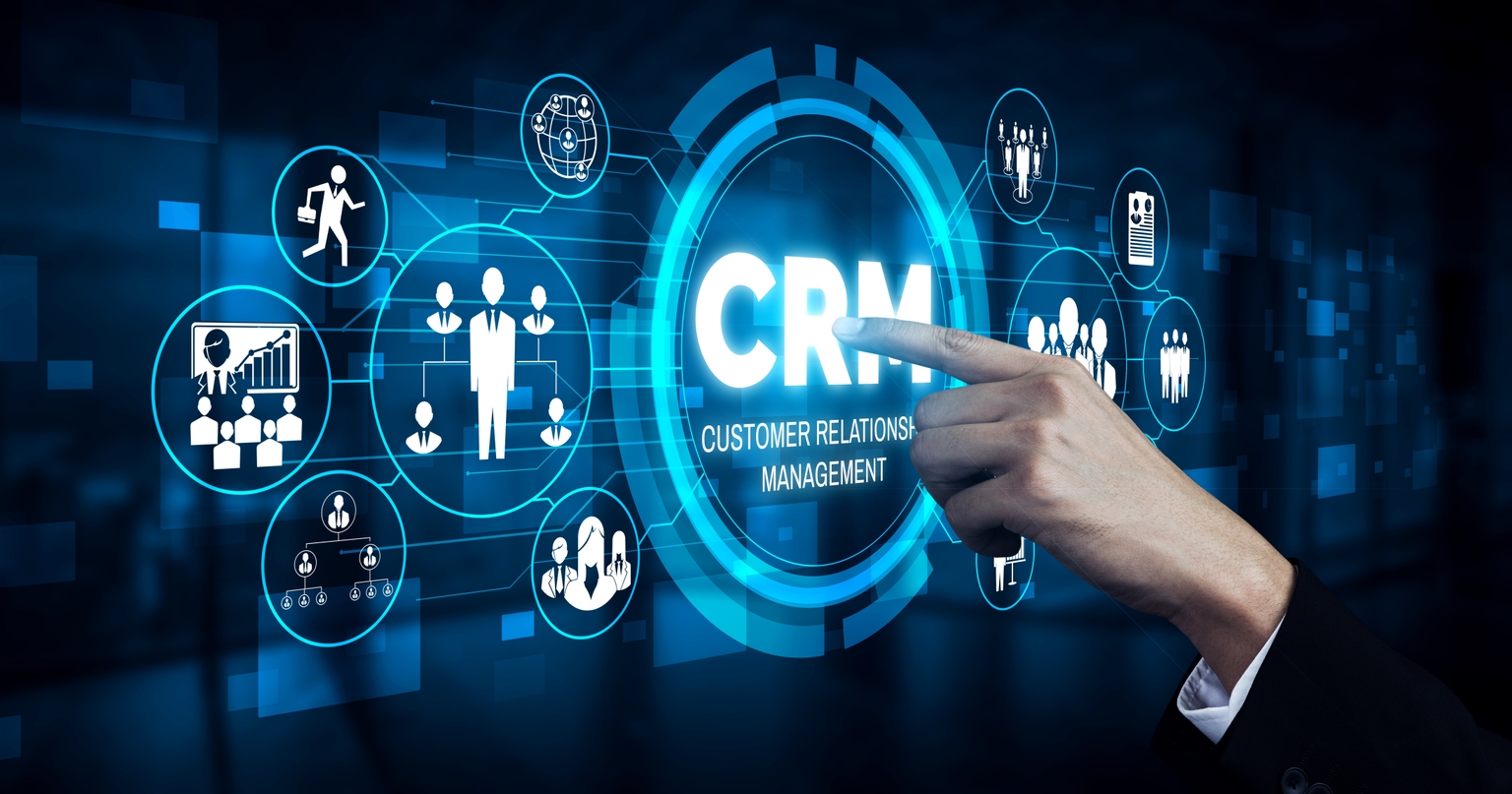Unlock the perfect CRM solution for your small business with our in-depth, action-oriented guide. You’ll discover:

- Why choosing the right enterprise CRM solution matters
- How Salesforce Sales Cloud, HubSpot CRM, Zoho CRM, Pipedrive, and Microsoft Dynamics 365 stack up
- A clear comparison table to speed your decision
- Practicable tips to get up and running today
- Answers to the most frequently asked questions
Let’s dive in!
Introduction: Why Your Small Business Needs an Enterprise-Grade CRM
You’re juggling contacts, deals, support tickets, and marketing campaigns—often in separate tools. That slows you down.
An enterprise SaaS CRM brings everything under one roof, so you can:
- Centralize customer data for 360° insights
- Automate repetitive tasks (follow-ups, lead scoring)
- Scale confidently as you grow
But small businesses need a balance of power and pricing. The wrong choice can leave you paying for features you’ll never use—or struggling with limited functionality.
In this post, you’ll get:
- A point-by-point comparison of the top platforms
- Bullet-proof criteria to evaluate any CRM
- A rich table to see key specs at a glance
- Direct, actionable advice to launch your CRM project
H2: Best SaaS CRM for Small Business: Salesforce Sales Cloud
Salesforce Sales Cloud stands out for its customizability and enterprise-grade ecosystem.
Why You’ll Love It
- Unlimited custom objects to model any workflow
- Robust Einstein AI features for predictive lead scoring
- AppExchange marketplace with 4,000+ apps
Key Pain Points Solved
- You need deep automation without coding
- You’re scaling fast and need room to grow
- You require top-tier security and compliance
“Salesforce Sales Cloud reigns supreme for extensibility and AI-driven insights.” (Zapier)
Getting Started Tips
- Use the Lightning Setup guide to activate core features quickly
- Leverage pre-built flows in Flow Builder to automate lead routing
- Sign up for a free trial of Pardot if you plan to scale B2B marketing
H2: Top CRM Platforms 2025: HubSpot CRM
HubSpot CRM delivers an all-in-one growth platform with no upfront cost.
Why You’ll Love It
- Forever-free plan for unlimited users and contacts
- Built-in marketing, sales, and service hubs
- Intuitive drag-and-drop pipeline management
Key Pain Points Solved
- You need a zero-cost entry point that still scales
- You want unified email marketing and CRM data
- You’re onboarding non-technical team members
“HubSpot shines for small teams that want to align sales and marketing without steep learning curves.” (Lindy)
Getting Started Tips
- Connect your inbox for automatic logging of emails
- Use conversational bots on your site to capture leads 24/7
- Upgrade to Marketing Hub Starter when you need email send limits
H2: Affordable CRM Software: Zoho CRM
For cost-sensitive businesses, Zoho CRM packs in advanced AI at an attractive price.
Why You’ll Love It
- Zia AI for sentiment analysis and workflow suggestions
 Modular extensions let you pay only for what you need
Modular extensions let you pay only for what you need- Multi-channel support: email, social, live chat
Key Pain Points Solved
- Tight budget, but you still want AI automation
- You need multi-lingual support for global buyers
- You want a unified inbox across channels
“Zoho CRM delivers the power of AI-driven automation on a small-business budget.” (Nuacom)
Getting Started Tips
- Activate Zia’s suggestion card to identify best-next actions
- Integrate with Zoho Desk for seamless support workflows
- Explore the Marketplace to extend your CRM with niche plugins
H2: Top CRM Platforms for Growth: Pipedrive
Pipedrive focuses on simplicity and visual pipeline management.
Why You’ll Love It
- Clean, Kanban-style deal pipelines
- Activity-based selling ensures follow-ups never slip
- Predictive sales forecasting
Key Pain Points Solved
- You hate cluttered dashboards
- You need to enforce a strict follow-up cadence
- You want an easy-to-use mobile app for your reps
“Pipedrive’s intuitive pipeline views help small teams drive deals over the line.” (Zapier)
Getting Started Tips
- Use Smart Contact Data to auto-enrich leads
- Set up email templates for common outreach sequences
- Explore Zapier connections to sync with your favorite tools
H2: Best Enterprise CRM Solutions: Microsoft Dynamics 365
Microsoft Dynamics 365 Sales integrates deeply with Office 365 and Azure.
Why You’ll Love It
- Native Teams collaboration and SharePoint document management
- Power Platform for low-code custom apps
- Enterprise-grade security and compliance
Key Pain Points Solved
- You’re already invested in the Microsoft ecosystem
- You need enterprise-level data governance
- You want to build custom apps without developers
“Dynamics 365 Sales bridges CRM with the rest of your business workflows in Office 365.” (Creative Networks)
Getting Started Tips
- Leverage Power Automate to trigger workflows across your apps
- Use AI-driven insights in Sales Insights to spot revenue opportunities
- Explore LinkedIn Sales Navigator integration for better prospecting
Comparison Table: Features at a Glance
| Platform | Best For | Starting Price/User/Month | Key Features | Integrations | Ideal Team Size |
|---|---|---|---|---|---|
| Salesforce Sales Cloud | Scalability & Extensibility | $25 | Einstein AI, AppExchange, Custom Objects | 4,000+ via AppExchange | 10–1,000+ |
| HubSpot CRM | Free Entry & Marketing Sync | $0 | Marketing Hub, Sales Hub, Free Plan | Native + Zapier | 1–50 |
| Zoho CRM | AI on a Budget | $12 | Zia AI, Multi-channel inbox | Zoho Suite + Marketplace | 5–200 |
| Pipedrive | Visual Pipeline & Ease of Use | $14.90 | Kanban Pipeline, Activity-Based Selling | Zapier, Marketplace | 1–100 |
| Microsoft Dynamics 365 | Microsoft Ecosystem Integration | $65 | Power Platform, Teams, Sales Insights | Office 365, Azure, LinkedIn Sales | 50–1,000+ |
Actionable Insights: Choose & Implement Your CRM
- Assess Your Workflow
- Map key steps: lead capture → qualification → deal closing → support
- Identify manual bottlenecks
- Match Features to Pain Points
- Need AI-driven lead scoring? Prioritize Salesforce or Zoho.
- On a zero budget? Start with HubSpot’s free plan.
- Pilot & Measure
- Run a 30-day trial with your top two picks
- Track KPIs: lead response time, win rate, rep adoption
- Roll Out Gradually
- Train a small team first
- Refine processes before company-wide launch
- Continuously Optimize
- Review monthly dashboards
- Tweak automations and fields as your process evolves
Frequently Asked Questions
Q1: What is the best CRM for small businesses on a budget?
A: HubSpot CRM offers a free plan with unlimited users and contacts, making it unbeatable for tight budgets.
Q2: Which CRM has the most powerful AI features?
A: Salesforce Sales Cloud with Einstein AI leads in predictive analytics and automated insights.
Q3: Can I switch CRM platforms later if my needs change?
A: Yes. Export your data via CSV or native APIs, then import into your new platform. Plan for a 1–2 week migration for clean data transfer.
Q4: How long does CRM implementation typically take?
A: For small teams, basic setup can be done in 2–4 weeks. Larger rollouts with customizations may take 2–3 months.
Conclusion
Choosing the right enterprise SaaS CRM for your small business boils down to matching features to your unique needs and growth plans.
- Salesforce Sales Cloud for unlimited scalability and AI power
- HubSpot CRM for zero-cost entry and marketing integration
- Zoho CRM for AI on a budget
- Pipedrive for visual simplicity
- Microsoft Dynamics 365 for deep Microsoft integration
Use our comparison table as your decision cheat-sheet. Then pilot your top picks, refine your processes, and watch your revenue engine fire on all cylinders.
You’re now equipped to select, implement, and optimize the perfect CRM platform—so go transform your customer relationships today!


